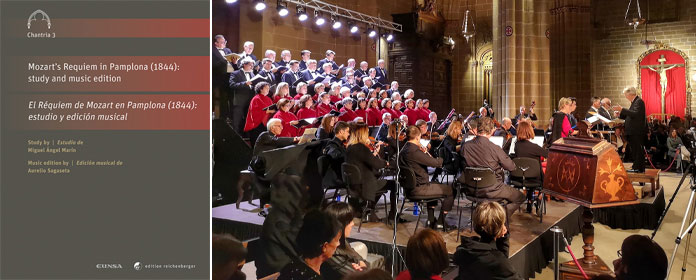El juego, una fuente de valores para los niños
Apolinar Varela, investigador de un proyecto de la Universidad de Navarra sobre educación del carácter en Latinoamérica, recomienda que los niños dediquen tiempo al juego con orientación pedagógica pero también al juego libre

FOTO: Manuel Castells
Apolinar Varela es doctor en Educación por la Universidad de A Coruña con una tesis etnográfica sobre juegos populares en una comunidad rural en Galicia. Asimismo, colabora con la Asociación Galega do Xogo Popular e Tradicional.
En la actualidad forma parte del proyecto ‘Investigar y promover la educación del carácter en las escuelas de secundaria en Latinoamérica’, que desarrollan conjuntamente la Facultad de Educación y Psicología y el Instituto Cultura y Sociedad de la Universidad de Navarra, con financiación de Templeton World Charity Foundation.
En el marco de su labor investigadora sobre el desarrollo de las virtudes, en esta entrevista ofrece algunas claves sobre el juego como fuente de valores para los niños. Próximamente impartirá en la Facultad de Educación y Psicología un seminario relacionado con estas cuestiones, bajo el título ‘El juego en el ámbito social y educativo’.
El proyecto de investigación sobre educación del carácter en Latinoamérica se centra en siete virtudes. ¿Cómo se relacionan con el juego infantil?
En primer lugar, muchos juegos requieren una destreza -manejar el diábolo o la peonza, competir…- y por tanto se necesita autodisciplina para alcanzar un buen nivel de ejecución. La justicia y la honestidad tienen que ver con establecer y respetar las normas en el espacio de recreo: los límites físicos, el marco normativo que apela al juego limpio… Asimismo, la humildad es importante para aceptar la derrota y que otro jugador es mejor que tú y la compasión, por su parte, guarda relación con la empatía hacia el otro cuando pierde, o bien cuando le elegimos para nuestro equipo aunque no sea bueno, por equilibrar el juego. En el otro lado tendríamos la gratitud de quien es escogido, que da un reconocimiento al compañero que le ha elegido. La valentía es necesaria para superar las dificultades que surjan durante el juego y también cuando hay un “medio salvaje”, como surfear, que requiere coraje para enfrentarse al mar.
¿Qué tipos de juego ayudan a adquirir y practicar los valores?
El juego es fundamental para el desarrollo cognitivo y social de los niños. Las virtudes guardan relación con este último plano. En función del tipo de juego, se potencian unas virtudes u otras: si hablamos de aquellos con un componente más físico, apuntamos a la perseverancia, la autodisciplina…; en otros más cooperativos desarrollamos valores como la solidaridad o la compasión.
Hoy en día hay muchas propuestas de juegos con marcado carácter pedagógico, frente a la espontaneidad de los juegos de antaño. ¿Por qué el juego libre ha pasado a un segundo plano?
En los últimos tiempo ha habido un proceso de “oficialización del juego”, como indican algunas personas. El juego libre, el que tenía lugar en las calles, prácticamente ha desaparecido; ahora mismo solo se juega en el triángulo institucional: casa, colegio y actividades extraescolares (clubes deportivos, ludoteca…). A veces los padres están demasiado preocupados por buscar un juego orientado para una edad, para desarrollar un tipo de habilidad… Hay que saber controlarlo. El niño necesita sus momentos de juego libre, con sus padres o solo, para desarrollar su imaginación. No hay nada más educativo que eso, imaginar nuevas situaciones. El juego educativo, con orientación pedagógica, tiene unos momentos y el libre, otros. No están reñidos, hay que conjugarlos.
¿Y ambos juegos son igual de válidos cuando hablamos de la educación en valores?
Siempre viene bien refuerzo del profesor, del pedagogo, en definitiva, del adulto. De hecho, una demanda de los niños es que los padres jueguen más con ellos. En el juego libre hay más riesgo de que surjan antivalores como la violencia, la discriminación… En el más educativo se intenta paliar esas conductas y potenciar la parte formativa a nivel psicológico, de contenidos, etc.
En cualquier caso, en el juego libre el niño aprende que debe ser capaz de autogestionarse: si se porta mal con los compañeros, hace trampas o llora cuando pierde, acaba identificando que los demás le van a rechazar. Si soy más competitivo, el grupo me deja de lado porque no es agradable estar con alguien que se enfada continuamente. Por tanto, el juego modula el tipo de conductas que se manifiestan. Y sin el juego difícilmente podemos relacionarnos con los demás, adquirir valores culturales y sociales...
Cuando somos más pequeños nos resulta más difícil, pero cuando el juego empieza a ser más social hay un cambio, también a nivel moral.
Has mencionado el juego con los padres. ¿Qué aporta a los niños?
El intercambio intergeneracional es fundamental, no solo con los padres, sino también con otros adultos. La persona mayor transmite valores, conocimientos, normas de juego…
¿Los juguetes tecnológicos ayudan en la educación en valores?
Los videojuegos y juegos tecnológicos en general están acaparando mucho campo en la infancia actual. Tienen aspectos positivos, como que ayudan a desarrollar determinadas habilidades cognitivas. No obstante, aunque no estoy en contra de ellos, quizá no los resaltaría tanto porque en ellos se pierde algo importante, la interacción física con los demás. Yo apuesto más por el juego tradicional, donde el elemento cultural y de comunicación está muy presente. La rayuela o la comba se conocen en todo el mundo y son fáciles de entender para todas las edades y culturas. Además, un valor añadido es la construcción del propio juguete o elemento de juego.





